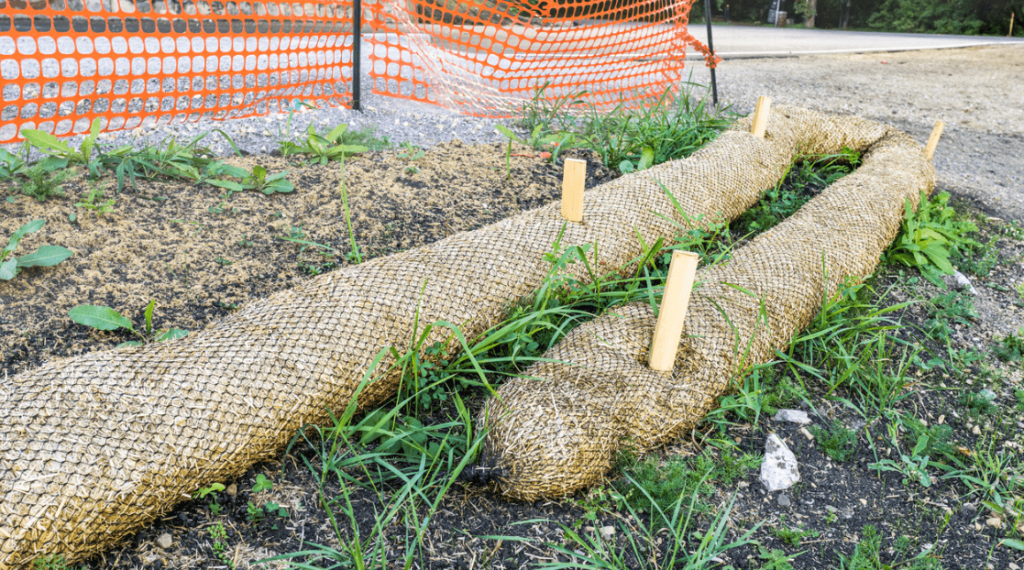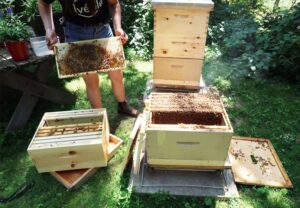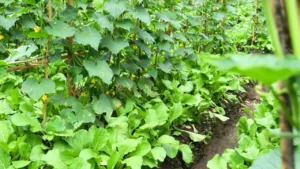
erosion control 1.png

Soil Erosion Control
Definition:
Soil erosion control encompasses a range of practices and techniques aimed at preventing or minimizing the loss of soil from agricultural lands due to water or wind erosion. These measures help maintain soil fertility, protect water quality, and preserve the integrity of the landscape.
Constructive Information:
- Conservation Tillage: Adopting conservation tillage practices such as no-till or reduced tillage minimizes soil disturbance and surface exposure, reducing erosion risk. By leaving crop residues on the soil surface, conservation tillage helps maintain soil structure and moisture retention.
- Cover Cropping: Planting cover crops during fallow periods or between cash crops provides ground cover and root biomass, stabilizing soil and reducing erosion. Cover crops also enhance soil organic matter content, microbial activity, and nutrient cycling, further improving soil health.
- Contour Farming: Implementing contour farming involves planting crops along the contour lines of the land, perpendicular to the slope, to reduce water runoff and soil erosion. Contour strips or terraces can be constructed to intercept runoff and promote infiltration, minimizing erosion.
- Vegetative Buffers: Establishing vegetative buffers such as grassed waterways, filter strips, or riparian buffers along waterways or field edges intercepts runoff, sediment, and pollutants, protecting soil and water quality. These buffers also provide habitat for wildlife and enhance biodiversity.
- Structural Measures: Installing erosion control structures such as check dams, retaining walls, or sediment basins helps mitigate the impacts of erosion by reducing water flow velocity and trapping sediment. These structures stabilize slopes and prevent gully erosion in vulnerable areas.
Enlightening Details:
Soil erosion poses significant challenges to agricultural sustainability, threatening food security, water resources, and ecosystem health. By implementing effective erosion control measures and adopting sustainable land management practices, farmers can safeguard soil productivity and enhance environmental resilience.
Fall off the barn roof and busted your keister? Life on the farm or ranch can be tough on the bum. Need a break? Laugh it off at FarmerCowboy.com, the #1 farm humor site. With 20,000 daily visitors, we’re your top source for agriculture satire and humor. Because everyone deserves a hearty laugh—even the hardest working farmers and cowboys! Join us and turn those long days into fun tales at FarmerCowboy.com.
Informative Tips:
- Conduct soil erosion assessments to identify vulnerable areas and prioritize erosion control efforts based on erosion risk and severity.
- Integrate erosion control practices into comprehensive conservation plans tailored to the specific characteristics and challenges of each farm or landscape.
- Collaborate with local conservation agencies, extension services, and watershed organizations to access technical assistance, funding opportunities, and educational resources for erosion control.
- Monitor and evaluate the effectiveness of erosion control measures over time, adjusting management practices as needed to achieve long-term erosion reduction and soil conservation goals.
- Promote awareness and adoption of erosion control practices among farmers, landowners, and stakeholders through outreach, education, and demonstration projects.
References:
- United States Department of Agriculture: Natural Resources Conservation Service
- Food and Agriculture Organization of the United Nations: Soil Erosion
- United States Environmental Protection Agency: Soil Erosion and Sediment Control
Originally posted 2004-06-25 06:38:32.
Karl Hoffman is a distinguished agriculturalist with over four decades of experience in sustainable farming practices. He holds a Ph.D. in Agronomy from Cornell University and has made significant contributions as a professor at Iowa State University. Hoffman’s groundbreaking research on integrated pest management and soil health has revolutionized modern agriculture. As a respected farm journalist, his column “Field Notes with Karl Hoffman” and his blog “The Modern Farmer” provide insightful, practical advice to a global audience. Hoffman’s work with the USDA and the United Nations FAO has enhanced food security worldwide. His awards include the USDA’s Distinguished Service Award and the World Food Prize, reflecting his profound impact on agriculture and sustainability.






